#motivation of exercise
Explore tagged Tumblr posts
Text
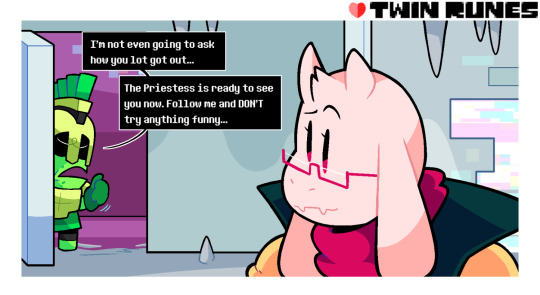
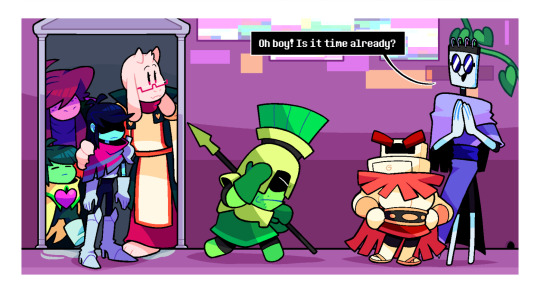
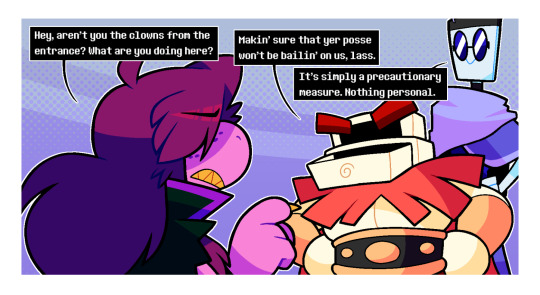

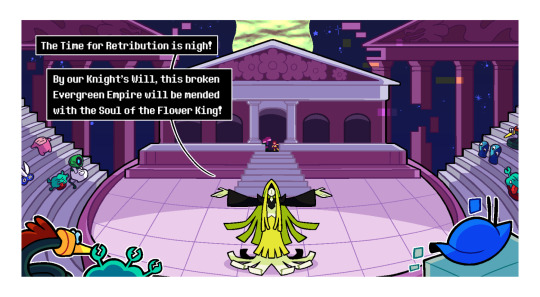

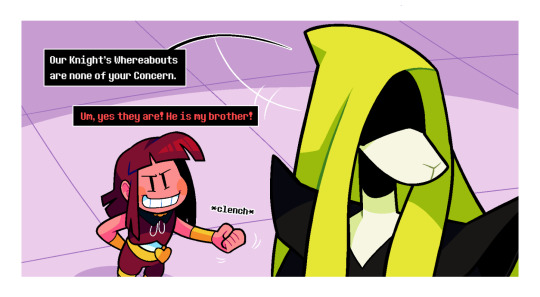

Told ya they should've come up a plan B
FIRST - PREVIOUS - NEXT
MASTERPOST (for the full series / FAQ / reference sheets)
#undertale#deltarune#utdr#crossover#crossover comic#undertale fanart#deltarune fanart#twin runes#twin runes comic#twin runes au#my art#kris dreemurr#frisk#chara#ralsei#susie deltarune#toriel#asgore#priestess#okay not gonna lie#this page took me forever#have I ever told you that I don't like drawing crowds?#or backgrounds?#it might kill my motivation but boy is it one hell of an exercise#also lookie here now we actually get a full look at the priestess#actually pretty happy with this design#the hood transitioning into hair with the tattered dress looking like scrolls#and the shadowy face making her look like Justitia#which fits with the yellow which is the color of justice and all#the original design used to have antlers to make the deer connection to mayor holiday stronger
3K notes
·
View notes
Text
youtube
How We Survived Covid | We Survived Thanks To You
This video is a special thank you to all our students. The financial / energy crisis on top of the huge impact Covid had on us, made it look like an impossible fight. It's not just your attendance that has kept the studio alive but your loyalty, enthusiasm and heartfelt feedbacks that gave us the extra motivation to keep fighting when I honestly thought I was done with running a yoga studio. Part of the motivation to keep the doors open was the impact that closing down may have on some of your lives. I know how much this studio means to so many of you. From the bottom of my heart, I (and I'm sure all the other teachers) thank you all for your continued loyalty to Akram Yoga studio. Lets watch the video How We Survived Covid | We Survived Thanks To You
#i survived covid 19#workout motivation#motivation on working out#motivation of exercise#working out motivation#how to stay motivated working out#motivation on exercise#muscle for fitness#muscle and fitness for her#muscle fitness#yoga studio#yoga benefits#yoga online classes#yoga room#yoga instructor#survival of the fittest#i will survive#yoga workout#how we survived#covid we survived#thanks to you#akram yoga studio#akram yoga class#akram yoga#Youtube
1 note
·
View note
Text



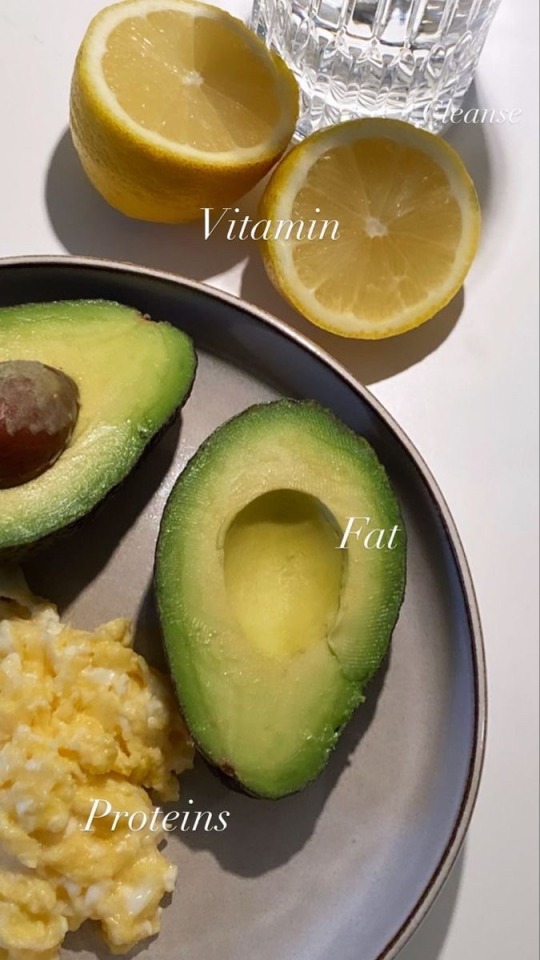


#black girl moodboard#goddess energy#moodboards#aesthetic board#luxury aesthetic#my moodboard#black girl aesthetic#black women#black femininity#nsfq#exercise#health & fitness#healingjourney#health#black women in luxury#fitspo#fitness#fitblr#fit motivation#blackwomen
5K notes
·
View notes
Text




have the courage to align your actions with your desires, and not your fears.
#glow up#it girl#motivation#clean girl#vanilla girl#pilatesworkout#skincare#beauty#pilates aesthetic#clean moodboard#study mode#studyblr#study motivation#study#workout#pink pilates princess#yoga pilates#exercise#gym#body goals#goals#2025 goals#self discipline#self care routine#self care#self love#morning routine#daily routine#lifestyle#growth
364 notes
·
View notes
Text
WHY THE FUCK THIS HAS TO HAPPEN TO ME RIGHT NOW?- but they say when you change your perspective that when the miracles happen
HOW TO TURN YOUR DISADVANTAGES INTO ADVANTAGES

Instead of trying to reprogram your mind to get rid of your disadvantages why not just turn them into a advantages. I truly don't think anything is a problem when it comes to shifting if you just shift your perspective.
1. ╰┈➤“I’m overthinking everything right now.”
Use it as a DR spiral.
Instead of shutting it down, channel it. Start overthinking your DR. Spiral into the details.
“What’s the smell of my DR room? How does my s/o handwriting look like? What the last thing I seen before I went to bed last night in my DR?
Let your overthinking become a insight of your Dr in small details. Small details = deep connection.
2╰┈➤“My brain won’t shut up / I keep getting random thoughts.”
Let them.
Even if those thoughts have nothing to do with your DR, let them pass without resistance.
When you stop fighting your mind, it relaxes. And once you’re relaxed, your method flows more easily. Your thoughts don’t block the shift—they soften the space around it.
(I'm also a firm believer you can get into a void state by just yapping your brain away)
3╰┈➤“I feel bored / I want to stop / This is taking too long.”
→ Reframe it as a sign of closeness.
Affirm in your mind:
“I’m bored because I’m already there. My reality just hasn’t caught up yet.”
Because remember our senses are last thing that shifts. Boredom means you’re there— your awareness is already there.
Boredom isn’t a block—It’s neutrality, It’s how your DR self feels—calm, natural, already there.
4╰┈➤ “I got distracted / I forgot I was even doing the method.”
→ Celebrate it.
That’s literally ideal. A lot of accidently shifts happen when you stop obsessing and let your subconscious take the wheel. It not you who shifts you but your subconscious. And if you can, use it because distractions can bring you to detachment and help you shift.
5╰┈➤ “I fell asleep mid-method!”
→ That was the method.
You didn’t fail—you succeeded. Not only you can turn this into a "method" now by just shifting while you sleep with no effort, but let me tell you something everytime you think of being in your Dr before sleep or you wake it extra confused or maybe you got a dream of your Dr? It because you were there while your drself was asleep so you just woke up here but you actually were in your Dr the whole night.
6╰┈➤“My affirmations feel fake / repetitive / I can’t do them for long.”
That’s because they’re already true. Your brain is just bored of repeating what it already knows as true. It’s not resistance—it’s recognition. You’re not convincing your mind of anything, you’re remembering what’s already real.
You already are the version of you that has it all.
7╰┈➤“My DR feels too good to be true.”
→ That’s your CR conditioning talking
It’s not too good to be true. It’s too good to be false. Your DR feels like a fantasy only because CR trained you to accept less. Flip the script: your DR is suited specific for you.
8╰┈➤ "I'm putting my Dr on a pedestal"
okay and so what? People put good stuff in their life on pedestal all the time? That doesn't make it unreachable or unreasonable because they already have it. Just the same way you are already in your Dr. Reminder yourself that it okay to romanticise your Dr life because it still your life.

#reality shifting#permashifting#shifters#shifting community#scripting#shifting advice#shifting motivation#shifting reality#shiftblr#shifting blog#shiftbr#shifting realities#shifting consciousness#shifting diary#shifting stories#shifting antis dni#shifting to hogwarts#shifting diery#shifting tips#shifting help#shifting doubts#shifting dr#shifting visualization#shifting activities#shifting affirmations#shifting#shifting awareness#shifting yap#shifting exercise#shifting kpop
280 notes
·
View notes
Text

made them to strike fear into my heart whenever i falter in my studies
no text ver under the cut

#vbros#venture bros#the venture brothers#pete white#rusty venture#thaddeus venture#ts venture#peterusty#admin draws#fanart#btw thank you everyone on all the tags on that last post :') rly needed that#i forgot how annoying lining stuff is lol ive just been cleaning up sketches for so so long#that i dont remember the last thing i actually lined#anyways free use for anyone else who wants this to put on and watch over them menacingly while they procrastinate#this has been in my brain ever since i started watching the show too cause like for weeks#i would motivate myself to do my exercises or study the shit i didnt even feel like touching anymore by thinking#i am halfway into a life of compliance and if i continue this way i will be like rusty and i DO NOT WANT TO BE LIKE RUSTY.#like its way too close for comfort even if its objectively not too close at all. but let me tell you that fear is a powerful motivator.#added the ship tag cos even if its not explicitly slash it also is. to me
343 notes
·
View notes
Text




3 deep breathes mindest

If this message resonates with fellow shifters who are mindful of their thought processes, I encourage you to try incorporating these affirmations :
“Every night, I shift effortlessly into the void by only taking 3 deep breaths.”
(p.s it can be 5 claps , 7 glasses of water , etc . whatever suits you)
“oh but i’ve seen this technique before and it seems too simple & easy to change my whole mindset-” girl lay down and relax I BEG.
Don’t treat this exercise as a method. Changing your shitty mindset is not something that happens overnight (mostly). I dare you to prove to yourself that you’re patient enough.

#shiftingrealities#shiftblr#manifesting#shifting antis dni#shifting diary#loablr#pure consciousness#shifting blog#4d reality#void state#shifting memes#shifting methods#shifting mindset#shiftinconsciousness#shifting consciousness#shifting stories#reality shifting#shifters#shifting community#shifting motivation#shifting experience#shifting exercise#shifting storytime#shifting success#shifting script#shifting s/o#shifting subliminal#shifting advice#shifting stuff#mindset
186 notes
·
View notes
Text
Daily Affirmations
I shift on every try.
I shift unintentionally.
I shift on purpose.
I'm so glad I shifted.
I'm in my desired reality.
I woke up in another reality.
I'm my own god, my own universe.
I control the 3D.
I allow myself to shift, no matter the circumstances.
I'm so happy that shifting is so easy.
Repeat this 15 minutes straight per day and I PROMISE you would be there.

#reality shifting#shifting#shifting motivation#desired reality#shifting blog#shifters#shiftblr#shifting advice#shifting community#shifting reality#loa tumblr#loassumption#loa blog#loablr#loassblog#shifting stories#shifting methods#shifting mindset#shifting moodboard#law of assumption#law of manifestation#shifting positivity#shifting perspectives#shifting post#shifting exercise#shifting tips#shifting ideas#shifting journey#shifting journal
252 notes
·
View notes
Text
Tubbo: WHOA, wait a minute, wait– This is kinda cooking! Wait, wait! :D
Tubbo: That's nasty, what the hell!
These DJ streams always have such banger mashups and transitions 🎵 🔥🔥
#Tubbo#Music#Tubbo DJ#Bless the DJ VOD archivists I listen to these while exercising and it's improved my motivation / stamina exponentially#January 23 2025#This is around the 1 hour mark#ish#I like the way this loops
336 notes
·
View notes
Text
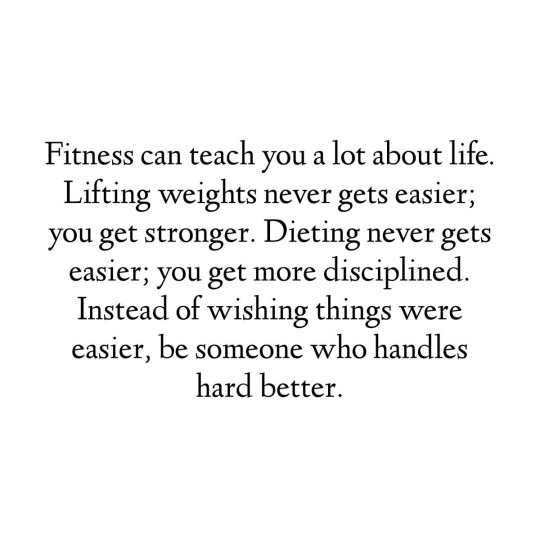
#fitness#motivation#fit#inspiration#healthy#workout#fitspo#exercise#gym#fitspiration#eatclean#weight lifting#lifting#women who lift#feeling good#life is good
1K notes
·
View notes
Text
SHIFTING EXCERSISE ── answer as your dr self .✦



✦ . ⁺ . ✦ . ⁺ . ✦
what is your name?
favourite food?
you can only choose one movie to watch for the rest of your life, what would you choose?
what is your birthday?
what is a song you will always have a place for in your heart?
favourite colour, go!
name the most important thing to you.
favourite memory?
least favourite memory?
someone you dislike?
in a crowded room, who would you look for first?
best music genre?
a topic you defend with your life
a character you relate to?
picture your room, is it organised or messy?
gun to your head... are you funny?
fruit platter or candy platter?
sugar, sour or spice?
whats your aesthetic?
who in your dr would you not be surprised if they came out as a shifter?
whats your hogwarts house?
ambivert, introvert, or extravert?
best school subject?
where can someone find you when youre sad?
who are you?
someones music you dont enjoy?
have you had a near death experience?
who was your first love? do you regret it?
questions for specific drs ★彡
(fame dr) has there ever been someone famous you didnt like?
(fame dr) do you enjoy your fanbase?
(fame dr) what are you famous for?
(fame dr) least favourite interview?
(pjo dr) whats your cabin number?
(pjo dr) favourite and least favourite god?
(pjo dr) least favourite camper?
(harry potter dr) best and worst teacher? why?
(harry potter dr) blood status?
(harry potter dr) what house are you in? whats your favourite house?
(harry potter dr) in time of need, would you ever use a unforgivable curse?
(band/singer dr) favourite instrument?
(band/singer dr) do you preform live? where did you last preform?
(band/singer dr) whats your favourite song you made?
happy shifting!!
⊱ ۫ ׅ ✧ -> apologies if i didn't get your specific dr in here :-(
ᓚ₍ ^. .^₎ . . .
#reality shifting#shifting#shiftblr#shifting community#shifting blog#desired reality#shifting motivation#shifting realities#shifters#shifting exercise#shifting consciousness#anti shifters dni#shiftingrealities
283 notes
·
View notes
Text

#self love quotes#motivating quotes#health quotes#weight loss quotes#positive quotes#inspiring quotes#quotes#inspiration#motivation#words#positivity#positive#happy#happiness#selfcare#self care#health#healthy#body positive#mind body spirit#body mind and soul#food#weight loss#healthy diet#fitness#workout#exercise#health and fitness#health information#healthy food
152 notes
·
View notes
Text




every morning run, every late-night study session, every mindful meal — it all adds up.
#it girl#motivation#clean girl#vanilla girl#pilatesworkout#skincare#pilates aesthetic#beauty#clean moodboard#study mode#healthylifestyle#healthy eating#exercise#protein#nutrition#healthy food#fitness#self love#loveyourself#selfcare#mindfulness
309 notes
·
View notes
Text
Writing Notes: Compelling Characters

Characters & Goals
“Every character should want something, even if it is only a glass of water.” –Kurt Vonnegut
Characters should almost always have clear goals, even if these goals are not immediately made obvious to the reader.
Without goals, characters lack motivation—that is, they have little reason to do anything interesting.
For this reason, many writers connect the main character's goals to the main conflict in the story. This generally means that the main obstacle to those goals plays a key role in the plot as well (for instance, in the form of a villain).
Often, the main character is most interesting and when confronting his own shortcomings in pursuit of his goals.
There are a few ways to construct this character-plot connection:
CHARACTER-FIRST APPROACH
Constructs a story’s plot for a character that already exists.
It asks a writer to build a character that they find interesting and then assemble the plot around them.
Example: A character who is struggling to overcome a phobia might, as a plot element, come into contact with the thing she fears. Success in this instance would mean that she doesn’t let the fear overcome her.
PLOT-FIRST APPROACH
Starts by defining the major conflicts the writer wants to include in a piece of fiction and then builds a character who will be motivated by those conflicts.
Example: A writer could decide to explore the effect of a catastrophic storm on a city before writing a main character. A character that would feel motivated by this conflict would be one with a connection to the city or to someone living in the city. Therefore, the son of someone who went missing in the storm would likely be a good focal character for this story.
Small Goals & Big Goals
Though it’s important for characters to have at least one big goal, it can be boring for the reader if a character is totally preoccupied with a single motivation.
Strong characters generally have two or more goals of varying sizes that they might confront separately or at the same time.
The reader excitedly anticipates your character's success or failure in achieving their goals.
Believability
Another factor that can contribute to a successful character is an element called “verisimilitude,” also called “believability.”
When writers talk about believability, they talk about whether the constituent parts of a character make sense and feel cohesive.
Example: We might expect a character who gets paid minimum wage to struggle to pay her bills, so if we see her driving an expensive car or spending several hundred dollars on a meal at a fancy restaurant, we would question these details.
There are, of course, stories in which these situations could exist, but the reader would need to know what allowed them to happen (inheritance from a late relative, perhaps, or an irresponsible approach to personal debt).
Suspension of Disbelief
Stories that take place outside of a realistic modern setting will generally require some extra work on the part of the writer to make them believable.
This is because of an idea called “suspension of disbelief.”
This refers to the tendency of readers to challenge details of a story that seem out-of-place, but not to question those details if they are presented with enough contextual justification.
Example: A story contains people who can fly with human-size wings. The reader would need to learn early on that this is a normal event that occurs in the story world. A reader who unexpectedly encounters flying humans three-fourths of the way into a short story could easily be baffled by this development, and might also consider it a cheap cop-out if it's used to resolve a plot conflict.
Adding Physical Detail
In addition to planning your characters thoughtfully, you must also sketch them coherently on the page.
Careful selection of physical and environmental details will make some of your character’s traits visible to your reader without you having to tell them outright what you mean. Examples:
A character who is disorganized might have wrinkled clothing or might consistently arrive late to appointments.
An introverted character might bring a book or notebook everywhere they go and might also stay out of crowded spaces (or feel uncomfortable in those spaces).
Symbolic Meanings
Be aware of the other meanings that a detail can bring into a piece.
A physical detail, especially one that appears multiple times within a work, might also develop symbolic meanings in addition to its literal meaning.
Writing Exercise
In a short vignette, and using only physical details (e.g., characters' clothing, appearance, or body language), make it clear to a reader that a character is experiencing one of the following conditions: worry, hunger, grief, joy, confusion, lack of sleep, anxiety, homesickness.
The word you chose should not appear in your vignette, nor should any synonyms.
Adding Personality
Broadly, “personality” refers to the collection of beliefs, thought patterns, and other mental qualities that dictate a character’s actions.
A personality trait could be the character’s bubbly disposition, their self-deprecating humor, or the fact that they’re always nervous.
When constructing a character, it’s important to think about how she would react in a number of situations.
Here are some questions to help you discover your character’s personality traits:
Is he fond of attention, or does he avoid it?
Is she curious to learn more about a topic/location/person, or does she keep to herself?
How big of a role does fear play in his day-to-day activities?
How does this character react if things don’t go the way she wants them to?
Does he think that he’s more intelligent/less intelligent than others around him?
Does she think she’s average? How would she define “average?”
How does he feel about making decisions?
Does she make decisions quickly or slowly?
Does he tend to regret decisions they’ve made?
It’s helpful to connect these traits to elements from the character’s life or past.
Example: A character who grew up with a controlling parent might have difficulty making decisions once they start living on their own.
Personality traits might also overlap with physical traits.
Example: Talking too loudly or too softly or interrupting others.
It’s also important to make sure that your characters aren’t good at everything they come across.
Doing so will reduce your story’s believability because—let’s face it—no one is good at everything.
To this end, you should allow your characters to fail at something, whether that something is huge or inconsequential.
Writing Exercise
In a short vignette, deliver some news to your character.
The news can be good or bad.
It can affect just the character, or the entire world population, or any number of people in between.
How does this character react?
Who do they tell, if anyone?
How do they interact with the space they’re in (e.g. punch a wall, hug a stranger)?
Try this exercise several times with the same character but different contexts (e.g., the character receiving the news alone versus receiving it in a public place) to see how they react under different circumstances.
CAUTION: Using Fictionalized Versions of Real People
It’s common for writers to borrow details from real life—the shape of a stranger’s chin, a classmate’s clicking of their pen during a quiet exam, or the restaurant server’s shrill laugh, to give just a few examples—but a writer should be wary of recreating an entire person on the page.
There are legal reasons not to do this, of course, but there is also the danger that a story filled with too many real-life people and events will be flat and boring.
Fiction should generally be a healthy mix of the ordinary and extraordinary.
If the mix is skewed too far in one direction, the reader can find the piece too unbelievable or too boring.
Source ⚜ More: Writing Notes & References ⚜ Writing Worksheet: Conflict Lists: 170 Character Quirks ⚜ +600 Personality Traits ⚜ 100 Sensory Words
#writing notes#character development#writing reference#on writing#writing tips#writing advice#dark academia#spilled ink#writeblr#creative writing#writing ideas#writing inspiration#literature#writers on tumblr#poets on tumblr#writing prompt#poetry#character building#light academia#writing exercise#writing motivation#michael whelan#writing resources
268 notes
·
View notes
Text
Reblog this if you're a fitblr, healthblr, runblr, health or fitness blog in 2024. I'm trying to max out my dash with healthy and inspiring stuff and I always need more people to follow
#fitblr#personal fitblr#exercise#plus size fitblr#workout#inspo#fitspo#motivation#fitness journey#fitness motivation#fitness blog#health#health and fitness#inspiration#yoga#runblr#healthblr#healthy#healthy diet#healthy eating#weight loss#weigh in#health and wellness#thoughts#self improvement#gym selfie#gym rat#gym#gym motivation#gym life
333 notes
·
View notes
